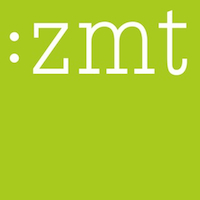| Pages in topic: [1 2] > | How to deal with clients who want queries delivered earlier than the translation? Thread poster: Max Jeremiah
|
|---|
Max Jeremiah 
United Kingdom
Local time: 20:00
German to English
+ ...
Hi everyone,
Given most projects have tight deadlines, I find myself working right up until the deadline, using every minute I have to make sure everything is right in my translations. But after delivering on time, I've received snarky comments in the past (from project managers at agencies) along the lines of "It would've been a lot better if you'd sent us the list of queries for the client sooner. We've got so much to do before making the final delivery to the client..."
... See more Hi everyone,
Given most projects have tight deadlines, I find myself working right up until the deadline, using every minute I have to make sure everything is right in my translations. But after delivering on time, I've received snarky comments in the past (from project managers at agencies) along the lines of "It would've been a lot better if you'd sent us the list of queries for the client sooner. We've got so much to do before making the final delivery to the client..."
Of course, part of me wants to say this isn't my problem and I did what was asked of me. It's not like I'm waiting until I deliver the translation to send the queries; as I said, I check to make sure every little bit is right, which means there may sometimes be queries I didn't see in my first draft or ones that I can answer myself. But naturally, I want to make my clients happy. I could send a query as soon as I see one, but I think they'd rather have the list of them in one document.
I suspect the answer to this is that there is no answer and I should just ignore such comments. ▲ Collapse
| | | | Kay Denney 
France
Local time: 21:00
French to English
Max Jeremiah wrote:
Hi everyone,
Given most projects have tight deadlines, I find myself working right up until the deadline, using every minute I have to make sure everything is right in my translations. But after delivering on time, I've received snarky comments in the past (from project managers at agencies) along the lines of "It would've been a lot better if you'd sent us the list of queries for the client sooner. We've got so much to do before making the final delivery to the client..."
Of course, part of me wants to say this isn't my problem and I did what was asked of me. It's not like I'm waiting until I deliver the translation to send the queries; as I said, I check to make sure every little bit is right, which means there may sometimes be queries I didn't see in my first draft or ones that I can answer myself. But naturally, I want to make my clients happy. I could send a query as soon as I see one, but I think they'd rather have the list of them in one document.
I suspect the answer to this is that there is no answer and I should just ignore such comments.
A translation with a heap of question marks in it is not a finished product!
You do need to get your list of questions to the client at least several hours before your delivery time, so that they have time to answer your questions and you have time to make whatever changes you see fit in light of their answers.
If you don't have time to do that, I suggest either negotiating longer deadlines, or asking your questions sooner, like after your first draft. I find that I often resolve most issues while proofing my draft, so they'd get more questions after the first draft than when I've proofread, but I consider that their "lack of patience" tax, in other words punishment for not giving me more time.
| | | | Samuel Murray 
Netherlands
Local time: 21:00
Member (2006)
English to Afrikaans
+ ...
Max Jeremiah wrote:
I want to make my clients happy. I could send a query as soon as I see one, but I think they'd rather have the list of them in one document.
You should send queries in good time, and not close to the deadline when the client's attention is on other things. It takes time for a client to answer queries and/or find the answers to queries, so if you send queries shortly before the deadline, then you're actually not respecting the deadline. If you want, you can collect a couple of queries at a time, so that you don't send them one by one, but you have to send them as soon as you think is reasonable, so that the client can deal with them while he is still relaxed.
Your client trusts you to resolve some issues on your own, even in cases where a client might have been able to shed additional light on the topic.
[Edited at 2024-01-18 09:25 GMT]
| | | |
Projects that need queries usually come from the same clients. So, my strategy has been: as soon as I receive the project, I’ll give it a good read and underline all questionable parts, then I do my first draft and if my questions still remain, it will be time to send them to the client with a note saying that we might need to negotiate a new deadline. With age and experience, I’ve also learned to say no to rush jobs or very tight deadlines...
| | |
|
|
|
| Two ways about getting our work done | Jan 18 |
When one of the proz here told me we are supposed to solve the customer's problems rather than create new ones, I found this very relatable since it's in this direction that I've been going throughout my translation career: the number of questions I asked the customer has always been minimal and the number of comments I wrote kept reducing steadily. I find that I'm usually able to solve all the problems myself without asking for help, even if the text I'm translating is obscure (which happens o... See more When one of the proz here told me we are supposed to solve the customer's problems rather than create new ones, I found this very relatable since it's in this direction that I've been going throughout my translation career: the number of questions I asked the customer has always been minimal and the number of comments I wrote kept reducing steadily. I find that I'm usually able to solve all the problems myself without asking for help, even if the text I'm translating is obscure (which happens often whenever I receive a document translated from another language like Turkish, Finnish, or Arabic, not to mention Chinese). My contextual guesswork skills are sufficient for most jobs, so I might ask the customer every now and then to help me with an acronym or something, but only after I have exhausted all other ways of finding the missing info myself. If an obscure passage can be interpreted in more than one way, I'll write a comment suggesting alternative translations.
And then there are people in my company who keep bombarding our main customer with questions about all sorts of translation problems, wanting to compile a monstrous list of requirements we'll be bound to follow in every step of our work. The list we now have is already huge, chaotic, and impossible to follow completely because our customer's in-house translators/editors are less than competent (while full of chutzpah). They are also annoyed by tons of new questions and often give inadequate answers, which the askers then tend to add to the requirements, so our list of stupid instructions is ever-growing. This pisses me off: why can't we be free to make our own decisions and consult each other to ensure uniformity?
P. S.: there is no way I'm suggesting the original poster has anything in common with the characters portrayed in the second paragraph of my post, I just don't think it is good practice to ask questions regularly (if it were an off-and-on thing, this thread would probably not have come into being). After all, maybe this practice is justified if one has to do super-high expertise jobs all the time ▲ Collapse
| | | |
Kay Denney wrote:
You do need to get your list of questions to the client at least several hours before your delivery time, so that they have time to answer your questions and you have time to make whatever changes you see fit in light of their answers.
Ideally, yes, assuming there is that much flex in the schedule, but the reality is that you often don't have a final list of questions until late in the day, and we all know that agencies can be slow or unwilling to pass questions on, and end-clients can be very slow to answer them and often don't do so adequately or at all. "Oh, just send it as it is. We'll sort it out." It may also be that the agency and/or end-client can usefully start checking or typesetting the translation while the questions are being resolved.
So basically you have to use your judgement based on your knowledge of the client and common sense.
I rarely ask questions. I just point out errors.
| | | | | Make a list of questions | Jan 18 |
Usually I make a list of questions when I finish the translation and send them before the delivery so that I can implement the answers. Customers tend to prefer to answer all questions in one time rather than receiving them during translation. Generally I don't work with so tight deadlines that prevent me from having the time for asking questions
| | | | Jose Ruivo 
Portugal
Local time: 20:00
Member (2007)
English to Portuguese
+ ...
| If you were a project manager... | Jan 18 |
You'd understand.
The fact that you are sending the question on the deadline for the delivery of the final job, means that the job wil be delivered late, because now it will take time to get to: 1) send the questions to the client; 2) wait for the client to reply; 3) send the replies to the translator, and wait for the translator to make any necessary changes.
I am both a project manager and a translator. When I am translating a smalish job, I send me questions at the ... See more You'd understand.
The fact that you are sending the question on the deadline for the delivery of the final job, means that the job wil be delivered late, because now it will take time to get to: 1) send the questions to the client; 2) wait for the client to reply; 3) send the replies to the translator, and wait for the translator to make any necessary changes.
I am both a project manager and a translator. When I am translating a smalish job, I send me questions at the end of my translation, before I start proofreading my translation. That mean that I am done proofreading the replies are back and I can deliver a finished job on time. When working on a large project, I send my questions either daily wor weekly, depending on deadlines and client preference.
When working as a project manager, on ocasion I 've had to deal with colleagues using the same approach as you, and really hated it! Don't waste too much time trying to find the replies to your questions, just send the questions to the people best capable to replying them. ▲ Collapse
| | |
|
|
|
jyuan_us 
United States
Local time: 15:00
Member (2005)
English to Chinese
+ ...
I guess the OP usually doesn't have any query for his clients in the first place, because there is nothing that he couldn't tackle on his own. In his case, it is the PMs' assumption that he should have submitted a list of queries after they've seen that the editors made changes to his translations.
[Edited at 2024-01-18 15:47 GMT]
| | | | Jo Macdonald 
Spain
Local time: 21:00
Member (2005)
Italian to English
+ ...
Set deadlines you can meet with time to spare, refusing "everything is urgent" type jobs.
Create a "term check" file while doing the draft translation if there are any things you want to check with the client and send it as soon as you've finished the draft before rereading and checking it.
When you've finished proofing and final checking the translation, if the client hasn't replied to your term check, ask whether you're going to extend the deadline to a set date or deliver before t... See more Set deadlines you can meet with time to spare, refusing "everything is urgent" type jobs.
Create a "term check" file while doing the draft translation if there are any things you want to check with the client and send it as soon as you've finished the draft before rereading and checking it.
When you've finished proofing and final checking the translation, if the client hasn't replied to your term check, ask whether you're going to extend the deadline to a set date or deliver before the original deadline without feedback on the term check.
Deliver the job before the agreed deadline.
If you receive feedback on your term check a few weeks later, realising the job was actually not that urgent, make any necessary changes to the translation then. ▲ Collapse
| | | | Lieven Malaise
Belgium
Local time: 21:00
Member (2020)
French to Dutch
+ ...
| On project managers | Jan 19 |
Project managers that don't create extra time by telling the translator to deliver by day X, while revision or delivery to the end client is supposed to happen on day Y, are probably not the best of project managers.
Of course they can't always choose to do so, especially for smaller jobs that tend to be more urgent, but for larger jobs in many cases they could if they wanted to. I have a customer whose project managers systematically send me questions about my translation and answe... See more Project managers that don't create extra time by telling the translator to deliver by day X, while revision or delivery to the end client is supposed to happen on day Y, are probably not the best of project managers.
Of course they can't always choose to do so, especially for smaller jobs that tend to be more urgent, but for larger jobs in many cases they could if they wanted to. I have a customer whose project managers systematically send me questions about my translation and answers to my questions days after my delivery. So I know for a fact that it's possible.
But through the years I've learnt to ask as little questions as possible. In my first years I asked questions about every doubt I had, but that's just not workable. Customers have also a responsibility to provide more or less well written source texts. In a lot of cases educated guesses suffise.
[Bijgewerkt op 2024-01-19 09:31 GMT] ▲ Collapse
| | | |
ask the agency to set up an Excel file in Google Docs, accessible by the client, the agency and the translator, where you post your queries when they arise, in real time. So the client will have enough time to answer them.
| | |
|
|
|
Kay Denney 
France
Local time: 21:00
French to English
Giovanni Guarnieri MITI, MIL wrote:
ask the agency to set up an Excel file in Google Docs, accessible by the client, the agency and the translator, where you post your queries when they arise, in real time. So the client will have enough time to answer them.
Now this is a sensible solution provided the client is notified when queries are added. Many agencies won't want the translator to see who their end client is (they might tell you it's for X company, given that the name is often mentioned in the text, but they won't want you to know that their contact is Jane Doe in the Communications Department and that her mail is JDoe@company.com)
| | | | Kay Denney 
France
Local time: 21:00
French to English
Christopher Schröder wrote:
Kay Denney wrote:
You do need to get your list of questions to the client at least several hours before your delivery time, so that they have time to answer your questions and you have time to make whatever changes you see fit in light of their answers.
Ideally, yes, assuming there is that much flex in the schedule, but the reality is that you often don't have a final list of questions until late in the day, and we all know that agencies can be slow or unwilling to pass questions on, and end-clients can be very slow to answer them and often don't do so adequately or at all. "Oh, just send it as it is. We'll sort it out." It may also be that the agency and/or end-client can usefully start checking or typesetting the translation while the questions are being resolved.
So basically you have to use your judgement based on your knowledge of the client and common sense.
I rarely ask questions. I just point out errors.
I maintain that you need to build a question-answering time into your workflow. There have been times where the client has lagged with their answers and the agency has said to send it in and they'll sort it out. I systematically ask them to send me the answers and/or their final version so I can see what the answers were. They hardly ever send it to me, but I show myself to be a conscientious translator who wants to finish the job.
Re getting answers in a timely manner: One very valuable tip I learned here (I don't remember who from but thank you anonymous Prozian), is to say "If I don't get answers to my questions by X time, I shall assume that the answer to all my questions is 'yes'."
Where X will leave you enough time to make the necessary changes to the translation in light of the answers.
Now, this does mean you need to frame the question so that the most logical answer would be yes. When you don't see any logical answer, the question can be "can I leave this sentence out?'
I have often been tempted to test how much anyone is paying attention by including one wacky question towards the bottom of page 2 where a yes answer would give a beautifully surreal touch to the text.
| | | | jyuan_us 
United States
Local time: 15:00
Member (2005)
English to Chinese
+ ...
| Looking at the title of the forum | Jan 19 |
I cannot help but ask the OP: Did you submit your queries after you had delivered your translation?
If so, why did you want to submit these queries? What roles would your queries play? It may serve to unnecessarily confuse the PMs.
| | | | | Pages in topic: [1 2] > | To report site rules violations or get help, contact a site moderator: You can also contact site staff by submitting a support request » How to deal with clients who want queries delivered earlier than the translation? | Anycount & Translation Office 3000 | Translation Office 3000
Translation Office 3000 is an advanced accounting tool for freelance translators and small agencies. TO3000 easily and seamlessly integrates with the business life of professional freelance translators.
More info » |
| | Trados Business Manager Lite | Create customer quotes and invoices from within Trados Studio
Trados Business Manager Lite helps to simplify and speed up some of the daily tasks, such as invoicing and reporting, associated with running your freelance translation business.
More info » |
|
| | | | X Sign in to your ProZ.com account... | | | | | |













































